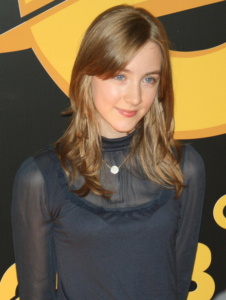Coming-of-age stories have long been a staple of literature and film, and it’s not hard to understand why. Growing up and forming an identity is both inherently dramatic and relatable, and the best examples of this genre are able to capture the often-overwhelming emotions that come from this time of life. However, these universal stories are so common that it can be difficult for any individual work to stand out.
The film “Lady Bird,” directed with confidence and warmth by Greta Gerwig, does not stand out on paper. The film follows Christine McPherson (Saoirse Ronan) a Sacramento teenager struggling to assert her identity and plan for an uncertain future. Christine’s eccentric behavior, from demanding everyone call her “Lady Bird” to applying to elite colleges she has no hopes of getting into, constantly frustrates her mother Marion (played by the brilliant Laurie Metcalf.) The film’s 93 minutes check off many archetypes of the genre: first crushes, high school dances, best friend drama and love-hate relationships with parents. But in its execution, “Lady Bird” feels fresh and revelatory. As cheesy as it sounds, the film made me both laugh and cry.
In a wonderful opening scene, the film immediately establishes a balance between humor and pathos. On a college road trip, Christine and her mother share a moment of quiet connection: tears stream down their face as they listen to the final lines of “The Grapes of Wrath” on tape. But seconds later they are arguing about anything and everything, and the dialogue feels both entirely natural and riotously funny. The scene ends with Ronan jumping out of the moving car, unable to listen to her mother talk for one more second.

“Lady Bird” is filled with scenes like this that find both humor and heartbreak in honesty. Gerwig is an exceptional writer and director. She is able to wring emotion and meaning from simple images and bits of dialogue — in her hands, a short montage feels vivid and beautiful. Gerwig’s work is aided by a top-notch cast. Ronan and Metcalf are expressive and natural actresses and their performances consistently elevate the film. Both draw audiences in with a genuine love for their characters, even as they are unafraid to lean into the pain and ugliness that harms the mother-daughter relationship.
With remarkable efficiency, Gerwig’s script comments on a wide range of subjects, from religion to mental illness to sexuality. The film is especially astute about class. Financial worry is a constant weight on Christine and her family, and Gerwig smartly shows how these struggles weigh on each character without melodrama or heavy-handedness. Christine’s middle-class background profoundly affects her identity, and she either lies or makes self-deprecating jokes to compensate in front of her wealthy private school friends. In one poignant, graceful scene, Lady Bird and her mother spend a day touring expensive homes with a real-estate agent, simultaneously indulging in a fantasy and realizing how many possible lives are out-of-reach. These moments never feel like an after-school special — they are honestly portrayed and artfully woven into the narrative.
The best surprises of “Lady Bird” are the small details: jokes and music choices and supporting characters that feel fully formed with just two minutes of screen time. If nothing else, see this to get ahead of the curve – “Lady Bird” is already receiving major Oscar buzz. Though too much hype can quickly kill an undeserving movie, for “Lady Bird” the attention is well deserved. This is a moving, funny and deeply compassionate film.
“Lady Bird” is now playing at the Broadway Centre Theater. Visit saltlakefilmsociety.org for showtimes and more information.


